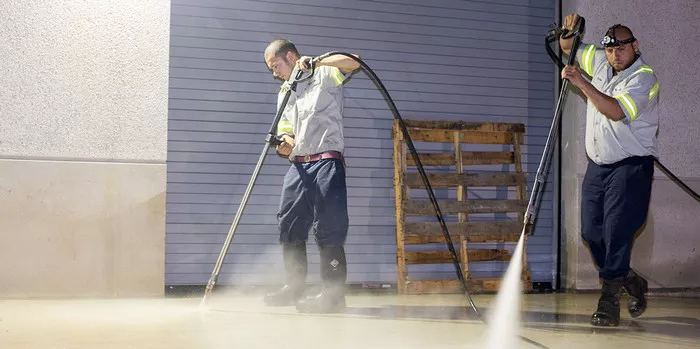In the quest for sparkling clean surfaces, many homeowners and professionals turn to pressure washers, powerful machines designed to blast away dirt, grime, and stains with high-pressure water. However, amidst the myriad of specialized detergents available, the question arises: can you use dish soap in a pressure washer? Let’s delve into this query, exploring the intricacies of pressure washer technology, the role of detergents, and the potential risks and benefits of opting for dish soap.
Brief Introduction
Using dish soap in a pressure washer is a topic that garners much attention, primarily due to its availability and cost-effectiveness compared to specialized pressure washer detergents. Homeowners and professionals alike often contemplate this option, seeking to achieve clean surfaces without breaking the bank. However, before pouring dish soap into your pressure washer’s reservoir, it’s crucial to understand the implications and potential consequences of such an action.
Understanding Pressure Washers
Before delving into the specifics of detergents, it’s essential to grasp the fundamentals of pressure washer technology. Pressure washers utilize high-pressure water streams to dislodge dirt, grime, and other contaminants from various surfaces. The key components of a pressure washer include the engine or motor, pump, hose, nozzle, and reservoir for detergent.
The engine or motor powers the pump, which pressurizes water from a garden hose. This pressurized water then travels through the hose to the nozzle, where it’s expelled as a powerful stream. The detergent reservoir, often integrated into the pressure washer, allows for the introduction of specialized cleaning agents into the water stream, enhancing the cleaning efficacy.
Types of Pressure Washer Detergents
Pressure washer detergents come in various formulations tailored to specific cleaning tasks and surface types. These detergents are designed to complement the high-pressure water stream, facilitating the removal of tough stains and grime. Common types of pressure washer detergents include:
1. All-Purpose Detergents: Versatile detergents suitable for a wide range of cleaning applications, from vehicles to outdoor surfaces.
2. Heavy-Duty Detergents: Formulated to tackle stubborn stains, grease, and oil buildup on surfaces such as driveways and garage floors.
3. Degreasers: Targeted detergents formulated to dissolve grease and oil, ideal for industrial and automotive cleaning tasks.
Using Dish Soap in a Pressure Washer
The allure of using dish soap in a pressure washer stems from its ubiquity and affordability. Many individuals wonder whether this household staple can serve as a viable alternative to specialized detergents. While dish soap may produce suds and temporarily enhance the cleaning process, its compatibility with pressure washer systems warrants scrutiny.
Using dish soap in a pressure washer poses several potential risks and benefits:
1. Benefits: Dish soap can help break down surface dirt and grime, providing temporary cleaning solutions for light-duty tasks. Additionally, it’s readily available and cost-effective, making it an appealing option for budget-conscious users.
2. Risks: However, the use of dish soap in a pressure washer may lead to foaming issues, potentially clogging the machine’s pump and nozzle. Moreover, certain dish soaps contain additives and fragrances that could harm surfaces or the environment when dispersed at high pressures.
Potential Risks and Considerations
Before opting for dish soap as a pressure washer detergent, it’s essential to consider the potential risks and consequences:
1. Equipment Damage: The foaming properties of dish soap can overwhelm pressure washer components, leading to pump and nozzle clogs. This can result in reduced performance and potential damage to the machine over time.
2. Surface Damage: Some dish soaps contain abrasives or harsh chemicals that may scratch or etch surfaces, particularly delicate materials such as painted surfaces or wood.
3. Environmental Impact: Certain ingredients in dish soaps, such as phosphates, can be harmful to the environment when discharged into waterways. Additionally, the excessive foaming caused by dish soap may contribute to water runoff issues.
Alternatives to Dish Soap
For users seeking alternatives to specialized pressure washer detergents, several options exist:
1. Environmentally-Friendly Detergents: Look for biodegradable detergents specifically formulated for pressure washer use. These products offer effective cleaning power while minimizing environmental impact.
2. Homemade Solutions: Consider creating homemade cleaning solutions using natural ingredients such as vinegar, baking soda, and citrus-based cleaners. These DIY concoctions are safe for pressure washer use and can be tailored to specific cleaning tasks.
Conclusion
In conclusion, while the temptation to use dish soap in a pressure washer may be strong, it’s essential to weigh the risks and benefits carefully. While dish soap may offer temporary cleaning solutions, its compatibility with pressure washer systems and potential long-term consequences merit consideration. For optimal results and equipment longevity, utilizing specialized pressure washer detergents or environmentally-friendly alternatives is recommended. By making informed choices, users can achieve clean, pristine surfaces while minimizing potential harm to their pressure washer equipment and the environment.

